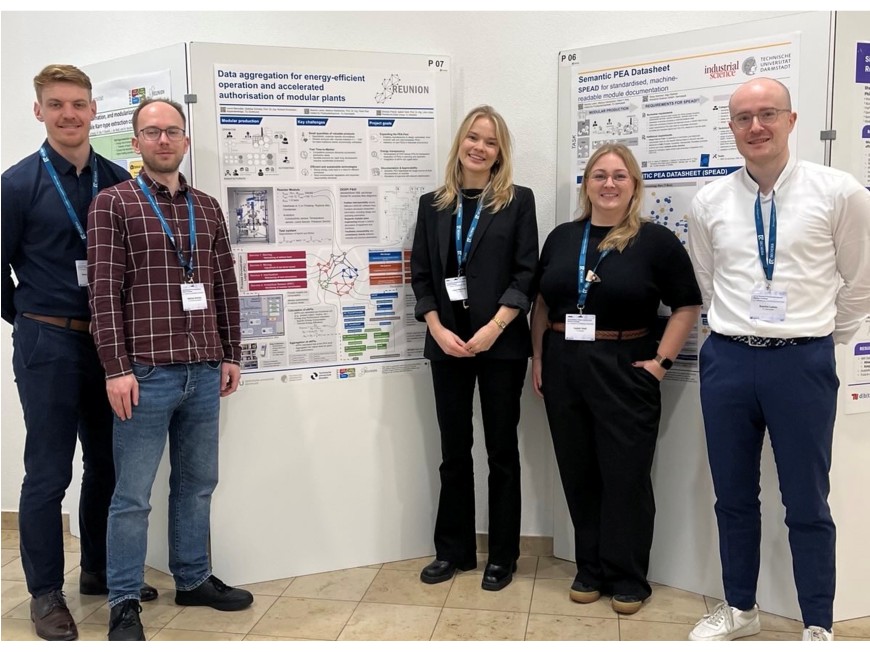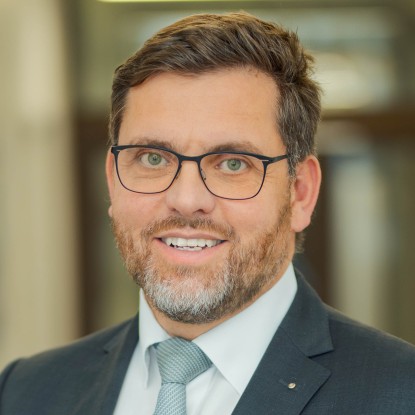FST wins Best Poster Award at PEMT 2025
2025/11/13 by S. Lamm
With the poster “Semantic PEA Datasheet – SPEAD for standardised, machine-readable module documentation“, a team from FST and Industrial Science generated a lot of lively discussion.
A team of the chair of fluid systems has won one of the coveted poster awards at the “Annual Meeting of Process Engineering and Materials Technology” (PEMT) 2025 conference in Frankfurt. With the poster “Semantic PEA Datasheet – SPEAD for standardised, machine-readable module documentation“, an innovative method for semantic documentation of modular process equipment was presented, which enables FAIR and modular documentation. This method was developed within the project REUNION in close collaboration between the FST, Industrial Science, and other project partners.
Praise was earned for the easily understandable display on the poster of knowledge graph concepts and their applications to problems the process industry is facing, which lead to rich discussions with the conference participants and was well received by the audience. The positive feedback led to the public vote which awards the FST with the best poster award.
Furthermore, a poster entitled “Data aggregation for energy-efficient operation and accelerated authorisation of modular plants” was presented in collaboration with Laura Marsollek, Mathias Schmitz (TU Dortmund), Shreyas Parbat and Isabell Viedt (TU Dresden). This poster illustrated how the linking of flowcharts, module automation and documentation, and energy KPIs is being implemented within the REUNION project.
A view into the regulatory state and a perspective of the future of the approval of modular plants was given by Hans-Peter Ziegenfuß (Hessian Ministry for Agriculture and Environment), Sebastian Härtner (Merck KGaA) and Prof. Peter Pelz (TU Darmstadt) in their joint presentation “Approval of modular plants – today and tomorrow”. In this talk they highlighted the current situation of approval, how the pending amendment of the BImSchG influences it, and how the project REUNION promotes the continued improvement of the approval process in the future.




